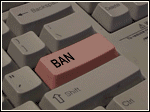- cross-posted to:
- [email protected]
- cross-posted to:
- [email protected]
Hi everyone,
I’d like to have my apps as tiles within a full-screen view (ideally called via pressing the Windows button on the keyboard) in Linux, pretty much the Windows Metro look as seen above. I have all the icon files and just need to link them to the apps themselves. Might you know of a way to do that?
Thanks for your help! Temperche
BRB, gotta wash out my eyes with bleach now.
Meh, i hate the design too, but i can absolutely support someone looking into making their linux install more personal.
It sucks when forced on you by Microsoft but when the suffering is entirely self inflicted it’s way more fun
Heck, that’s practically the unofficial linux motto.
I am somewhat convinced some part of my brain is just an agent of chaos and wants to see me suffer because the moment I get something working nicely I suddenly get the urge to change everything
Sure. Whatever. But Windows 8 is really the last theme I’d ever choose.
It looks pretty good but its usability is shit
If it’s usable for the person that wants it then all is well, just don’t make this default pls
[This comment has been deleted by an automated system]
I haven’t tested it myself personally but this menu for KDE seems to be what you’re looking for?
Wow! Thanks. I absolutely love this style, but I know I am in a great minority in that, so I didn’t even think anyone had done this.
oh wow, looks pretty nice
There will always be someone requesting the weirdest Windows features.
[This comment has been deleted by an automated system]
The move makes some sense in context. Computer sales were declining and it was looking (if you’re Cueball) as if the traditional desktop/laptop computer was about to die out. The Surface was being developed, tablets were all the rage, PC gaming wasn’t that big yet, and so Microsoft thought “alright, K/B+mouse is out, touchscreens are in, we need to update our interface to cater for this new demographic, but we’ll still allow people to use a keyboard and mouse if they really want to I guess”. That’s when they went all in with Windows-On-ARM (remember Windows RT?) as well.
Obviously a completely missed shot in retrospect. What Microsoft miserably failed to understand is that smartphones were in, but touch screen interfaces are absolutely awful for power users. Ya can’t really use Excel or write a book on a touchscreen. And ya don’t need to pay for a Windows license to browse Facebook, Twitter, and passively consume some news and video. So the “middle segment” of tablets never really had broad appeal in general, and Surface tablets especially were the middle segment of a middle segment (with android/chromebooks on one side and the iPad on the other) so the Metro UI never had a chance to make sense for more than a handful of very lonely Surface users. No wonder they scrapped it a few years later when sales of touchscreen windows devices failed to materialize.
[This comment has been deleted by an automated system]
Art is a valid use-case for tablets, and actually the best one. For almost all of corporate office jobs however, tablets are a worse proposition than a regular workstation. Most people type more than they draw.
It’s fine, but that means that Windows 10’s “UI optimized for KB/Mouse with accessibility features for touch screens” was, in retrospect, the better choice all along. Windows 8 did the opposite and made the experience worse for everyone under the completely incorrect assumption that we were ALL going into a touchscreen-first world.
[This comment has been deleted by an automated system]
Having a dedicated touchscreen shell is something that I believe GNOME and KDE are trying to achieve, but I don’t know whether they succeeded UX-wise as I’ve never used them.
It’s unfortunate that Windows 10 was a regression for touchscreens, but if MS did not have the resources/willingness to support both well, then focusing on KB+M was the right call IMO. When building Windows 8 they simply miscalculated how relevant touchscreens would/could become for Windows in the 2010s.
If you want privacy, Linux is definitely the only choice anymore. If you want privacy and a good UI, Linux may be a good choice depending on your tastes in UI. I think KDE does UI/UX right for your average power user while retaining most of Windows’ UI paradigms (which is why SteamOS uses it for its desktop mode). Ironically Microsoft has actually been stealing a lot of design cues from KDE, especially with Windows 11. The lock screen of Windows 11 in particular is a straight ripoff of KDE Plasma, every time I walk in front of a locked Windows computer I have to do a double take. The rounded corners, slight Gaussian blur, cute-yet-serious font, it’s all there.
Right? I’m thinking “who the frig would willingly choose this of all options‽” 🤣
I like that for Windows phones. I still have one. Screen space is saved. You choose the app you want on the main screen from a clean list instead of an icon profusion. Nowadays all phones interfaces are the same and less good than the Windows Phone interface.
Its cool on phones, but I admit, I don’t need that on PC.
This is the UI of my nightmares
KDE has some app launchers that look just like this, but last time I tried them, they were a little buggy🫠
But yeah, I think that would be your best bet. A good Win 8 style launcher for KDE and Kwin rules to make all apps launch fullscreen automatically.Here’s some launchers that might fit the bill:
https://store.kde.org/p/1584342/
https://store.kde.org/p/1897990/
https://store.kde.org/p/1364064/
https://store.kde.org/p/1677095/
https://store.kde.org/p/1973454/This one is the most similar, however it did not work for me:
https://store.kde.org/p/1932321It’s going to depend on what desktop environment you are using, the default Gnome launcher has a huge full screen launcher setup.
there may be gnome extensions for another look.
Gnome is not the same look, but similar in its oversized UI.
I hate it.:)
I tend to use some other quick launchers. or a simple nested applications menu.
I use rofi (on my machine with dmenu theme) and after some digging I found this: https://github.com/Dartegnian/rofi-metro You may use this on any distro as there are very few dependencies to run this simple launcher :)
I don’t have a particular DE in my mind that offers this feature out of the box, but if one offers that, then it’s KDE. Search for it in their application starter menu section, there’s one for sure!
Question is: why do you want that?
It’s wrong to judge one for their taste, that’s sure. To be fair, I even liked the W8 menu when it came out.The problem with it is, that it creates a “dive in”-effect, similar to when you enter a room and then forget what you wanted in the first place.
I personally would recommend you Vanilla Gnome. It has a similar, simplistic design language and the overview creates the opposite effect. Instead of the “enter a new room”, the activity overview disconnects you from your current task and makes task switching easier while not forgetting what you originally wanted.
Are there any other reasons for why you chose the menu?
I’m coming from a place of complete ignorance on this, but I’m guessing this would be a straightforward gnome extension. The app menu is almost this already
depending on how much your willing to learn eww(elowars wacky widgets) would be a very good option
Gnome overview maybe?
You could hack something together with KDE widgets (plasmoids I think?), creating an array of app launchers on your desktop.
It’d be a completly manual way of doing it though, so up to you if you think it’s worth it.
There is a KDE Plasma widget that adds a metroUI style tiled launch screen to the desktop… Though I don’t remember it’s name atm
KDE has the option
I’m with you; I like the Metro style. If you have an Android phone, the Square Home launcher is a great implementation.















